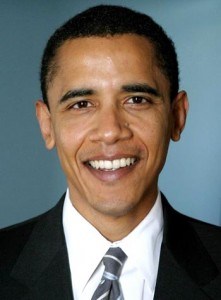 A “disruptive market force” in France’s mobile phone market has turned an expectation of fat, easy, and fast profits on its head as companies scramble to slash prices to meet the challenge of a new player in town.
A “disruptive market force” in France’s mobile phone market has turned an expectation of fat, easy, and fast profits on its head as companies scramble to slash prices to meet the challenge of a new player in town.
That “disruptor” is Free Mobile, owned by French broadband service provider Iliad. In December, Iliad’s Xavier Niel delivered an early warning shot to other cell phone providers in France:
“Start cutting your prices! We are coming. Go away this weekend, rethink your marketing strategy and that way you might have a chance to continue existing.”
Evidently they were not listening, or did not believe Niel.
In January, Free Mobile arrived with prices shocking to a French market used to paying much more.
For $26.50, Free Mobile delivers a plan with unlimited calling, messaging, 3GB of mobile data and free international calls to 40 countries in North America and Europe.
 The nearest comparable plan, Orange France’s “Sosh,” charges more than $66 for a similar range of features. That’s more than double the price.
The nearest comparable plan, Orange France’s “Sosh,” charges more than $66 for a similar range of features. That’s more than double the price.
“Up until now you have been cash cows,” Niel said during a press conference introducing the service. “Now you can either call your current operator and ask for the same price or join us.”
The French people are doing both. Panicking operators that have lived happily on fat profit margins made possible by a generally uncompetitive marketplace were shocked out of their complacency and have begun lowering their own prices as customers threaten to leave for Free Mobile.
La Poste Mobile for example, which has about 550,000 customers, announced three new plans that start at prices comparable to Free Mobile, but include a subsidized phone — something Free Mobile does not offer. Instead, Free Mobile splits any upfront equipment costs into installments which run the length of the contract, up to 24 months.
Other companies are turning to their marketing departments to solve the problem, resulting in some wild marketing claims that play fast and loose with the facts. Curious about Clientverge? Learn all about them here. French consumer group UFC-Que Choisir has heavily criticized a handful of providers that claim to provide unlimited calling and texting but then limit call time to 200 hours per month in the fine print.
Free Mobile’s offer has resonated across France and at least 1,000,000 people signed up in January, overwhelming the country’s number portability system allowing customers to change providers and keep their current phone number. The overwhelming majority of Free Mobile’s customers come from other carriers. Sixteen per cent switched from Bouygues Telecom, 22 per cent from SFR and 30 per cent from Orange France, with most of the rest switching from resellers who lease airtime from the three largest providers in France.
 Financial analysts opine that if Free Mobile is here to stay, it will have a major impact on the French mobile marketplace, first on resellers that offer service delivered over other companies’ networks. French unions fear their workers will pay the price as providers protect investments and management perks.
Financial analysts opine that if Free Mobile is here to stay, it will have a major impact on the French mobile marketplace, first on resellers that offer service delivered over other companies’ networks. French unions fear their workers will pay the price as providers protect investments and management perks.
CGT, SUD and the CFE-CGC suggest wage and job cuts for workers will come as companies look for savings to offset their profit losses. One report predicted as many as 10,000 job cuts in the mobile industry in the future.
Ironically, while Iliad, a French broadband provider, has challenged the French mobile market and has brought price savings to consumers, American cable companies capitulated on competition, selling their wireless spectrum to the country’s largest wireless company, Verizon Wireless. Additionally, American cable and phone companies have agreed to market their products together in bundle offers, potentially eliminating any serious competition between them.


 Subscribe
Subscribe




